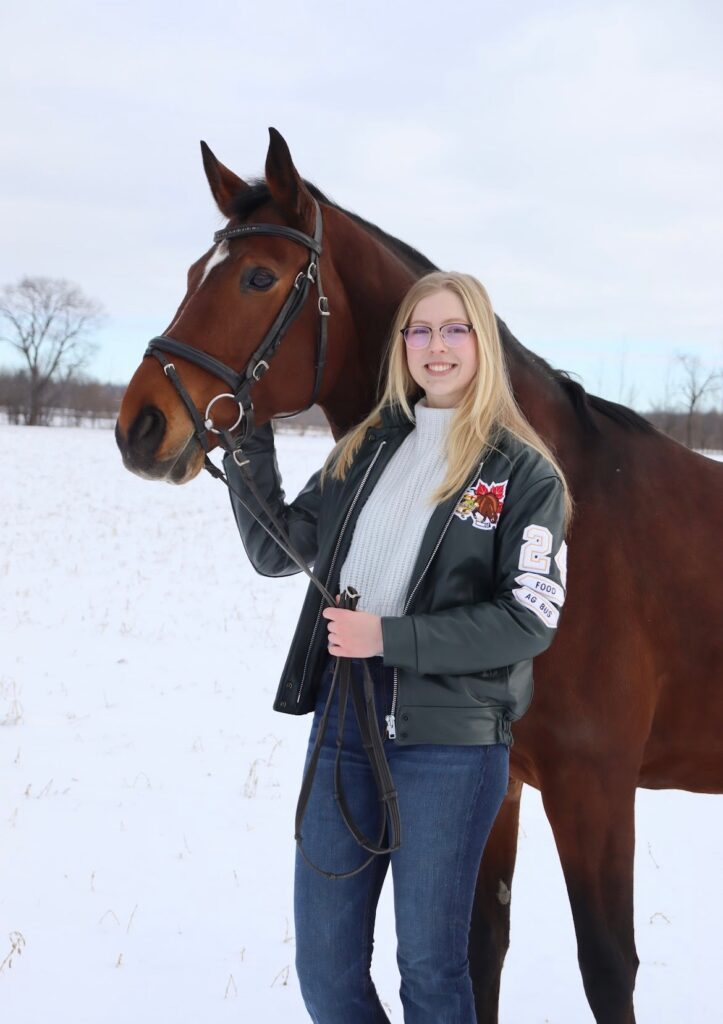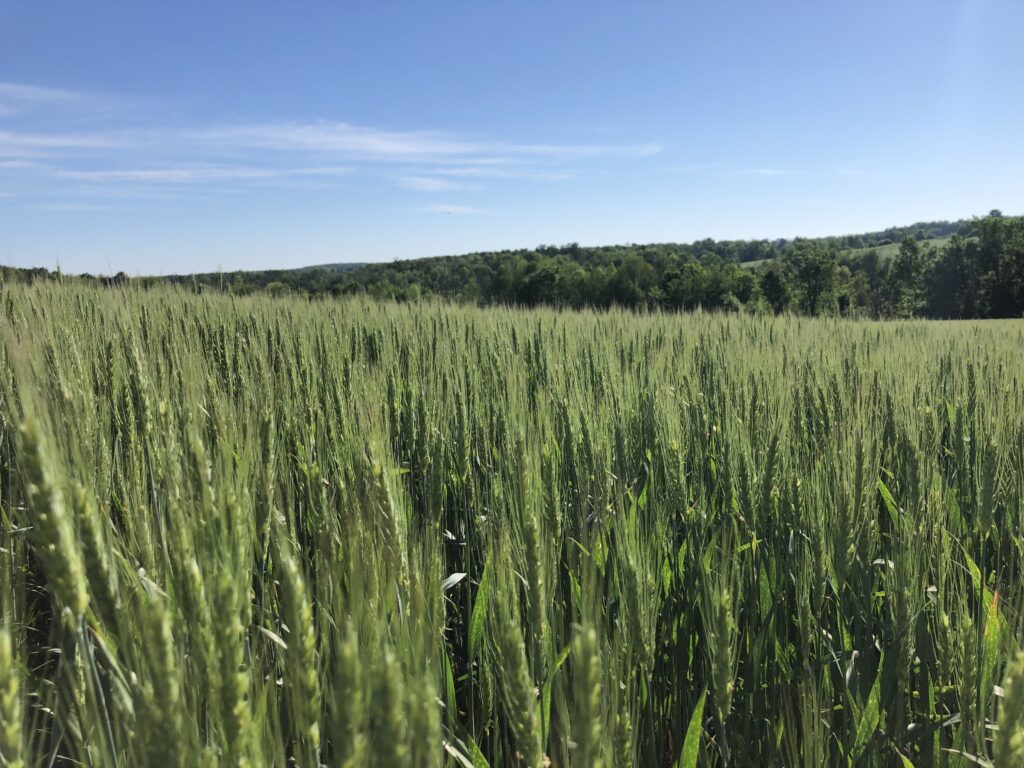Employee Spotlight: Abigail Chambers
June 24, 2025
We’re back this month with another employee spotlight!
Get to know Abigail (Abi) Chambers, one of P&H’s Customer Service Representatives from our Amberley, Ontario location. In this blog post, learn how Abi got started in agronomy with the help and support of her co-workers at P&H and how she’s grown into her position and found a lover for the agriculture industry.

Q: Can you give us a little bit of background about yourself and your education?
I grew up in Cambridge, Ontario, which is one of the smaller cities here. I started working on a horse farm when I was young until I finished university, and I actually wanted to get into the Equine industry, but it’s hard to get into. I ended up going to the University of Guelph and getting my Food and Agricultural Business degree—going into it, I didn’t really know what I wanted to do but the further I got into the program, I realized I really liked it.
After my second year of university, I did an internship at the P&H Amberley location and I really, really enjoyed it. Then I went and did a year-long internship at the Guelph head office doing administrative work for the grain division, but I realized it wasn’t for me. They gave me the opportunity to try out a few different roles, and I ended up working with a Crop Inputs merchant for the summer before a job opened up at the Amberley location for a Sale Agronomist. They took a chance on me and I’ve now been in this role since last July (2024) and I really love it. So I don’t really have a background in ag, but I thoroughly enjoy the industry.

Q: So, what does your day-to-day look like as an agronomist?
It depends on the time of year!
During the winter, there’s a lot of pre-planning for seed and a lot of people pre-buying fertilizer for spring. It is less hectic, but that just means I have a lot of opportunities to get out and talk to growers and see how they’re doing.
In the spring and early summer, we’re working on sending out fertilizer blends and seed. We’re pretty well wrapped up planting at this point, just the specialty crops are left now. Our focus at the moment is getting herbicide on and fungicide on the wheat.
Q: Do you have a favourite crop you like to work on/work with?
I would have to say winter wheat is my favourite crop to work with. Watching it come back to life in the spring after being planted in the fall and dormant all winter is so interesting to watch.
Q: Can you explain a little bit about how winter wheat works and how its different than regular wheat?
Winter wheat is planted in the fall, usually in September or October. It then overwinters and comes out of dormancy once the weather warms up, so it has a bit of a head start come spring. We usually harvest at the end of July or early August. There are different types of winter wheat, too—hard red and soft red, for example. They’re used for different things depending on the type of wheat, like cakes, breads, crackers, or pastries.

Q: What’s the most rewarding part of your job?
For me, the most rewarding part of my job is creating relationships with growers. Also, seeing your recommendations in terms of crop inputs work out for them and just seeing the success of their yields is super rewarding.
Q: How does the work you do tie into the agri-services that P&H offers?
As an agronomist, we’re kind of the front lines of the agri-services that P&H offers. Selling the products, creating those relationships, and having growers want to use us for those agri-services we provide.
Q: Can you tell us a bit more about how you got into agronomy and what the process has been to get your certification?
I did the Ag Business degree at the University of Guelph, so that’s pretty straightforward. But in terms of getting into agronomy, I took the long route. I took a summer job with P&H and really liked it, and then I did my internship at the Guelph office. After the internship, I was given the opportunity to do four months of work with a Crop Inputs Merchant. I was going to try a couple more roles at the office in Guelph, but the Crop Inputs Merchant I worked with pushed me and gave me the courage to actually apply for a job in agronomy.
In terms of my certifications, I have my pesticide vendor certification, which you can do an online course to get. I’m working towards my CCA (Certified Crop Advisor) certification, which I need four years of experience for. Once I gain that experience and before I can apply for my CCA certification, I need to take two exams—an international exam that focuses on agronomy practises and nutrient management, and a local board exam that’s specific to the region I’ll be working in (Ontario).
Q: With all of the environmental changes happening in the world right now, do you anticipate your work changing in the next five to ten years? What do you think that could look like?
I think in terms of crop inputs, there would have to be a federal change; something that would essentially force us and growers to change what we’re doing. I also feel like the amount of fertilizer and chemicals could decrease, and it would start when the newer generations take over the farms—they would be the ones to adopt those kinds of practises. The younger generation coming in have new ideas, new information and technology, and new ways of getting things done that differ from their parents or grandparents.
Q: Is there anything we haven’t talked about that you want to mention before we go?
Because I didn’t go to school for agronomy, I’ve done a lot of learning on the job, and there have been so many farmers and colleagues who have been willing to teach me. You can plan all you want over the winter but once spring hits, plans change quickly and you just have to go with the flow. So having the opportunity to learn from farmers has been great—agronomy is a fantastic job, and I love what I do.
To work with an agronomist like Abi, talk to your local P&H location today.